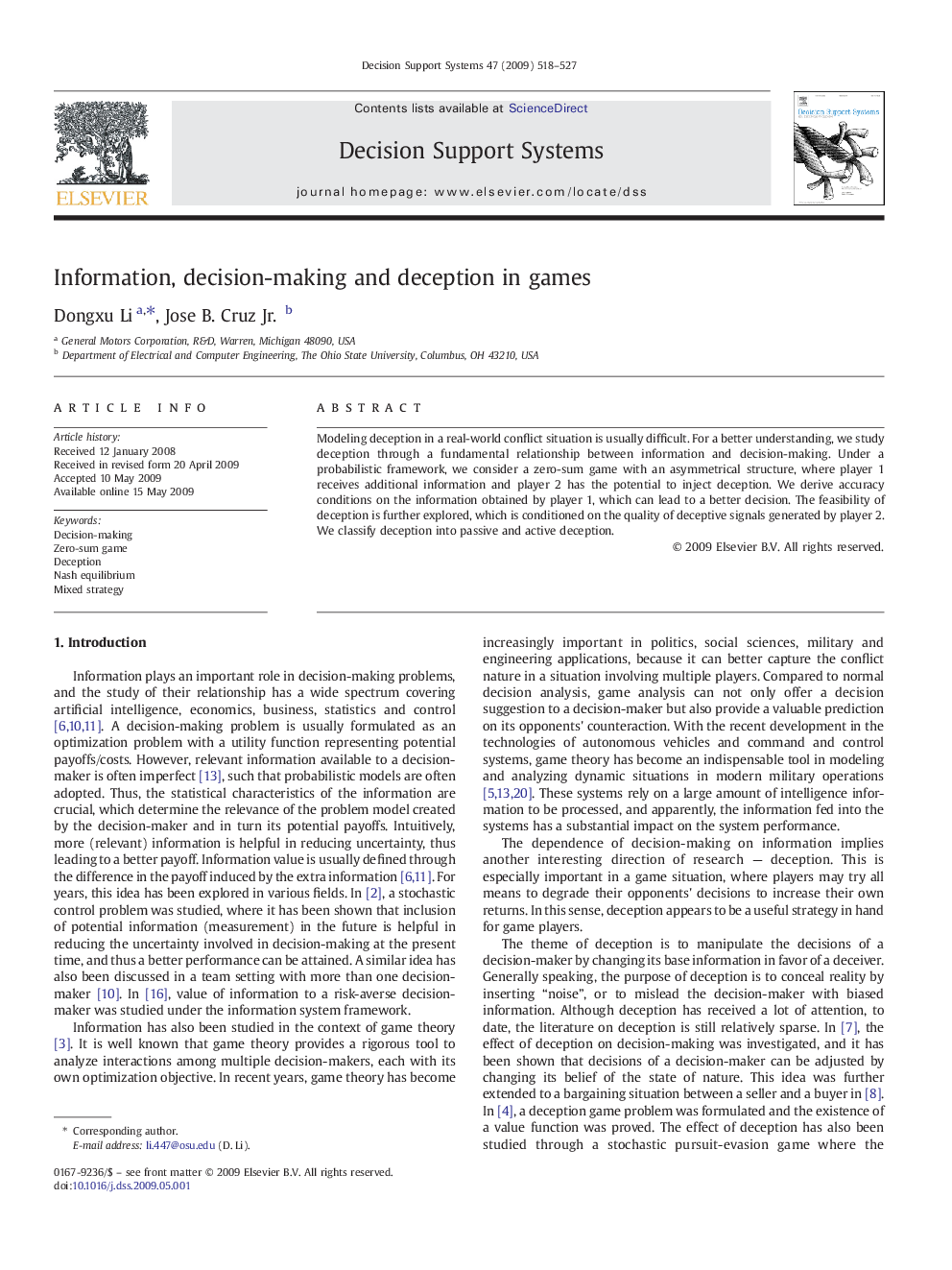| Article ID | Journal | Published Year | Pages | File Type |
|---|---|---|---|---|
| 552836 | Decision Support Systems | 2009 | 10 Pages |
Abstract
Modeling deception in a real-world conflict situation is usually difficult. For a better understanding, we study deception through a fundamental relationship between information and decision-making. Under a probabilistic framework, we consider a zero-sum game with an asymmetrical structure, where player 1 receives additional information and player 2 has the potential to inject deception. We derive accuracy conditions on the information obtained by player 1, which can lead to a better decision. The feasibility of deception is further explored, which is conditioned on the quality of deceptive signals generated by player 2. We classify deception into passive and active deception.
Related Topics
Physical Sciences and Engineering
Computer Science
Information Systems
Authors
Dongxu Li, Jose B. Cruz Jr.,
